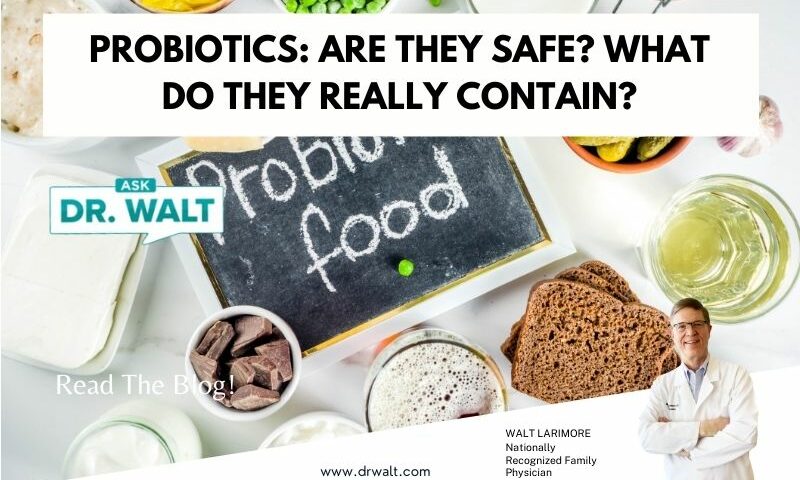
What are the risks of taking vitamins & supplements? Aren’t they safe?
December 28, 2022
How do I pick a protein power? Which ones are dangerous?
December 30, 2022For many years, I’ve strongly recommended ConsumerLab.com for evidence-based and trustworthy advice about purchasing or ingesting herbs, vitamins, or supplements. This week I’m running some samples of their wares and encourage you to subscribe to this great site if you take or are considering any natural medicines. Oh, by the way, I have no financial connection to ConsumerLab at all.
This is the “Executive Summary” of ConsumerLab’s recent article: Probiotics: See What They Really Contain and Our Top Picks.
- What are probiotics? Probiotics are viable (living or hibernating as spores — such as B. coagulans) bacteria and/or yeasts that confer a health benefit. Probiotics are sold as capsules, tablets, powders, chewing gums, gummies, and lozenges, as well as cultured foods and beverages, such as yogurts and kefirs.
- What are the health benefits of probiotics? Certain probiotic strains may have gastrointestinal benefits, including reducing the risk of diarrhea associated with antibiotics and helping with constipation, bloating, diarrhea, and irritable bowel syndrome, and preventing colic in infants. Others may be helpful for gum disease, allergies, slightly lowering blood pressure and cholesterol (LDL and apoB) levels, and other uses.
- What’s the right dose of a probiotic? Typically, a probiotic should provide at least 1 billion cells daily — although, as discussed in the “What They Do” section, some probiotics have been shown to work at a lower dose (100 to 500 million cells), such as those for children or used to treat conditions in the mouth. Be aware that there can be a huge variation in the number of viable cells (called colony-forming units or CFUs) from product to product. Among products tested, this ranged from just 100 million to hundreds of billion!
- What did ConsumerLab find testing probiotics? Most products were found to contain their listed amounts of probiotics, if not more, and were not contaminated with pathogenic organisms. However, one product contained hardly any viable organisms, despite listing many probiotic strains.
- What are the best probiotic supplements? Among products that were Approved for their quality in our tests, we selected Top Picks for some of the most common uses of probiotics for people, and for dogs and cats, based on containing the types and amounts of probiotic organisms that have evidence of being effective.
- What are prebiotics and postbiotics? Prebiotic ingredients are sometimes added to probiotic supplements although in amounts that are typically smaller than used clinically. Prebiotics provide soluble fiber that promotes the growth of probiotic bacteria and may be beneficial for irritable bowel syndrome, constipation, blood sugar control, lowering cholesterol, and other conditions (see our Prebiotic Supplements Review). Postbiotics are also sometimes added to probiotics. Postbiotics include heat-killed probiotics as well as the byproducts of fermentation, such as butyrate, carried out by probiotic organisms. These may be beneficial for diarrhea, Crohn’s disease, irritable bowel syndrome, weight loss, and preventing common colds (see All About Postbiotics). Probiotics that include prebiotics or postbiotics have, together, been referred to as synbiotics.
- Are probiotics safe? Probiotics may temporarily increase digestive gas. If you have a milk allergy, be aware that trace amounts of milk proteins may occur in some probiotics. Probiotics may not be safe prior to abdominal surgery and should be used with caution in people who are severely ill, immunocompromised, or have feeding tubes or central lines. For more details see Concerns & Cautions.
© Copyright WLL, INC. 2022. This blog provides healthcare tips and advice that you can trust about a wide variety of general health information only and is not intended to be a substitute for professional medical advice, diagnosis, or treatment from your regular physician. If you are concerned about your health, take what you learn from this blog and meet with your personal doctor to discuss your concerns.




